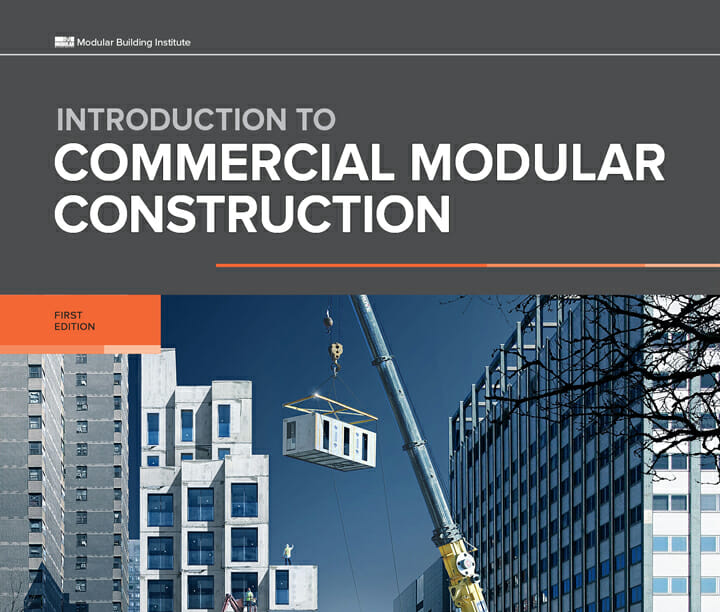"Introduction to Commercial Modular Construction" Online Course
NEW from the MBI Learning Center
A Comprehensive Guide to the Fundamentals of Commerical Modular Construction
The Modular Building Institute (MBI) developed the Introduction to Commercial Modular Construction online course with the goal of introducing learners to the commercial side of modular construction – an innovative and exciting modern method of construction.
This online course discusses the modular building process compared to traditional site-built construction and is designed to help learners understand the terminology and concepts of modular building, including client needs, design, fabrication, transportation, and installation.
Upon completion of the course, learners are awarded with a Certificate of Completion.
Scroll down for complete instructions and get started today.

What to Expect from "Introduction to Commercial Modular Construction"
MBI’s Introduction to Commercial Modular Construction online course offers learners a comprehensive introduction to the commercial modular construction industry, including terminology and concepts.
How It Works
Simple Steps to Get Started with the MBI Learning Center
To access the MBI Learning Center and its educational content, you will need an MBI account and login credentials. MBI membership is not required for account creation.
- If you do not have an MBI account/login credentials, complete this form to get started. Once your account has been created, you will receive an email with instructions to create your login credentials.
- MBI member companies can access the Introduction to Commercial Modular Construction course at NO COST!
- Complete the Introduction to Commercial Modular Construction course to earn a Certificate of Completion.
